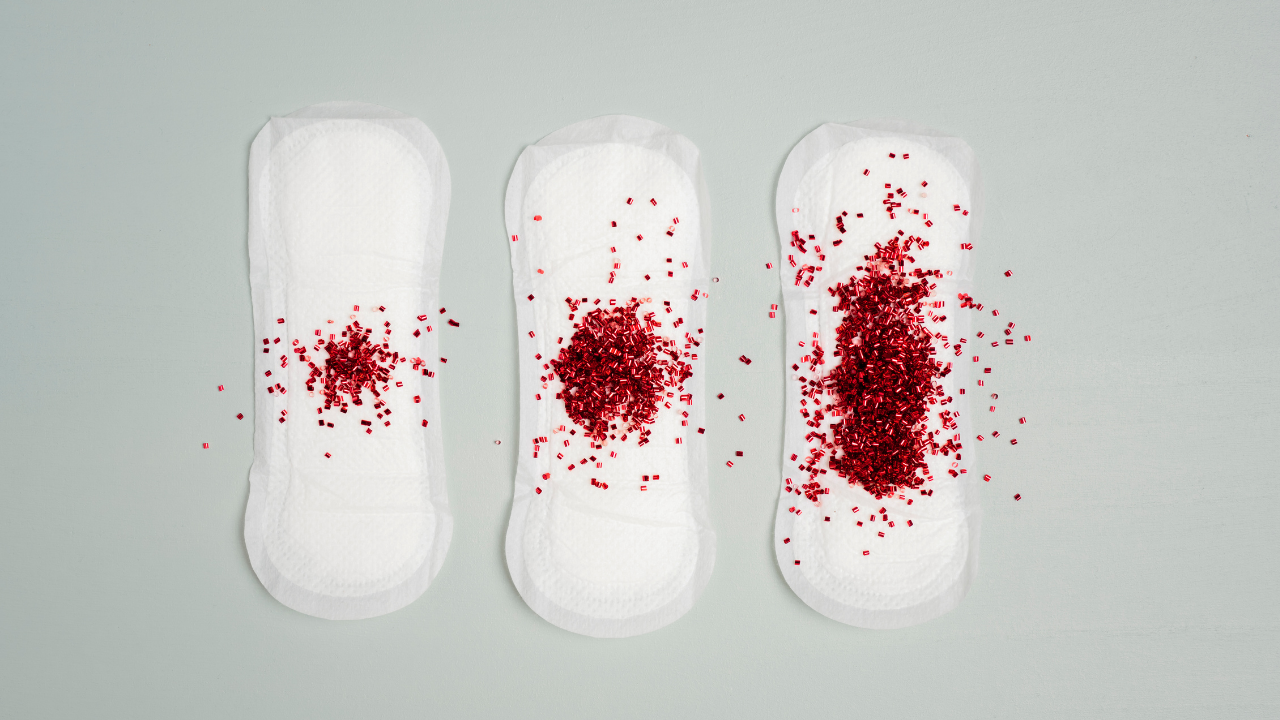
Let it Flow: Talking About Menstruation
Jan 31, 2022About 1.9 billion people menstruate each month. So why is it still so uncomfortable to talk about periods? It's time to stop hiding tampons up sleeves and talk more openly about all things menstruation.
Text by Miranda Bush, Feisty Triathlon Head Coach & Educator
Last September I watched a man execute most of Ironman Wisconsin with a tampon up his nose. It was a bit comical but I personally commended his willingness to use a very absorbent and functional piece of cotton to stop his continual nose bleed. “Tampon guy” quickly became a local social media legend post-race.
It is fascinating (and a bit triggering) that this man can be celebrated for smartly stopping bleeding while menstruating females have been conditioned to believe that we must discreetly hide the fact that we bleed, sliding tampons into pockets or up sleeves to travel to bathrooms.
Roughly 1.9 billion people menstruate each month. According to many sources, the average cycle is 24-38 days, with bleeding lasting from 2-7 days, for approximately 40 years. Do the math: If you bleed for five days monthly over 40 years that is 2,400 days, or roughly six-and-a-half years of your life. That is a lot of days spent bleeding.
I am guessing that if you are a menstruating triathlete you have either experienced or wondered if today will be the day you embarrassingly bleed heavily during a workout. Maybe you cause the pool to shut down; leave a small puddle on a spin bike or weight bench; or mistake blood for sweat running down your legs during a run. This blog was inspired by my own fear during a recent swim, one that caused obsessive glances down to see if my tampon was failing.
Yes. We bleed. And even though I empathize that it can be a pain in the ass to schedule bathroom stops during long rides, I also know that regular menstruation (bleeding) is a good thing.
It is just a little blood, right? I distinctly remember the demonstration in my 5th grade health class in which they attempted to lessen fear of bleeding by showing us the small amount of blood we actually lose during one menstrual period. After all, the average woman loses less than 30ml in each period, with over 80ml indicating excessive bleeding. But no one mentioned what it would be like to bleed more than that small demonstrated amount—or the potential for golf ball size blood clots or random moments of feeling like you are nearly hemorrhaging. For years no one wanted to mention, or study, the fact that women have periods at all.
Lucky for us and future generations, the stigma around bleeding and lack of research around the impact of the menstrual cycle on athletes is changing. Leading researcher Dr. Stacy Sims is educating us on how to use our cycle as a tool to benefit our training. She reminds us that our sex hormones are at their lowest point the week that you’re on your period. This is when your body is more resilient to stress and a great time to nail your high-intensity sessions because you recover better. She instructs us to “never let someone tell you that you should expect to feel flat, tired, and sluggish because you have your period. That’s a myth.” But she also acknowledges that each female athlete is different. Some of us feel energized. Some of us feel exhausted. And many experience cramping or more pressure or pain when bleeding.
Regular menstruation is normal and healthy. Connect with your body so that you can truly know how you feel while bleeding. Do not settle with the “ease” that accompanies missed periods. As athletes and coaches we need to have a heightened awareness of the symptoms of Low Energy Availability (LEA) and Relative Energy Deficiency in Sport (RED-S), which often (yet not always) include cessation of menstruation.
Having a regular period is a good thing, even if it can feel like a nuisance. Destigmatizing menstruation and using our unique physiology as a training tool are steps in the right direction for female athletes. How can we just let it flow?
- Track your cycle to be able to practice using it as a training aid. Pay attention to changes in the frequency, flow, and color of your period in order to be an advocate for yourself when you suspect that something is “off.”
- Research and try different ways to manage your bleeding during each period. Many athletes have foregone the use of tampons for menstrual cups or discs. There are many options for different flows and anatomy (some of the more popular options are linked below, none of which endorsed by myself or Feisty Triathlon). Others are experimenting with new brands of period panties during training and even racing. Dr. Sims’ research notes the benefits of using an implanted progestin intrauterine device (IUD) to help control heavy menstrual bleeding (HMB). For extreme cases of HMB, athletes may consider endometrial ablation. This should be viewed as the last resort for heavy menstrual bleeding as it is a serious procedure that causes infertility. It also does not guarantee cessation of menstruation. In ~60% of cases women still bleed post ablation, with roughly 10% of cases not having any change at all.
- Be aware of the drawbacks of traditional routines used to manipulate the menstrual cycle. For years the common practice by physicians was to over-prescribe oral contraceptive (OC) pills to “control” heavy bleeding. But the fact is that while on an OC you do not get a true period, but rather a withdrawal bleed (or no bleed at all). In addition to studies showing that being on an OC can negatively impact training, it also makes it difficult to keep track of how your body is adapting. You may not see irregularities, which can be early indicators of LEA or RED-S.
- Get your iron levels checked regularly. Iron is essential to energy. Due to monthly bleeding, women are at an increased risk for iron deficiency, as well as anemia. Anemia is such a concern among exercising women that a recent study concluded that active women should get screened for anemia as part of their general care.
- Push back against the social pressure to hide the fact that you bleed. Make small changes in how you talk about your period. Educate yourself and be open with your coaches, athletes, and kids (girls AND boys). Recently I sent my high school boys to school with bags of tampons to support the period poverty drive. And I was beyond excited when they didn’t bat an eye at carrying the see through plastic bags to school. We can do this together, with some discomfort and a lot of transparency and practice.
- Support ending period poverty. According to Medical News Today, period poverty is defined as a lack of access to menstrual products, education, hygiene facilities, waste management, or a combination of these. It affects an estimated 500 million people worldwide. Click here to get some ideas on how you can give a f*ck about period poverty.
I am not naive to the fact that as athletes there will most likely not be a day that we will prefer to bleed profusely from our vaginas rather than train without fear of it running down our legs. But, I hope that being reminded that bleeding for a large part of our lives is as normal as breathing, you can reframe how you see your cycle. Use it as a training tool while reconsidering how you can manage the bleeding that inevitably accompanies it.
Stop slipping your tampons up your sleeves.
***
Resources
Gathered from unofficially polling menstruating females on Facebook (in no particular order):
Menstrual cups:
A recommended quiz to find your best cup: https://putacupinit.com/quiz/
https://www.amazon.com/Super-Jennie-Menstrual-Cup-Large/dp/B01A2YZUAI
https://cottonmermaid.com/menstrual-cup/
https://flexfits.com/pages/about-us
https://rubycup.com/pages/about-us
Discs:
https://www.amazon.com/product-reviews/B099P74CWG
Period panties:
***

Miranda Bush is the Feisty Triathlon Head Coach and Educator. She is also a USAT Level I and Training Peaks Level 2 certified coach and an ACE certified Health Coach. She is the owner and head coach of MB Coaching and the Zone Racing Team. Her passion lies in using lessons from training and racing to improve all of life and ultimately make you a more content, well-rounded athlete and person.
Get Feisty Triathlon straight to your inbox
Get the low-down on what's happening in the world of women's triathlon, tips & tricks to crush it on the race course and be the first to know about special offerings from our feisty sponsors.
We hate SPAM. We will never sell your information, for any reason.

